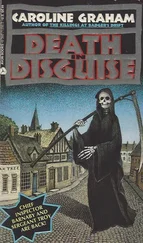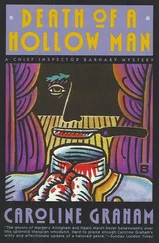One thing he simply must not do for his own safety was to confuse the experience with…Roy buried the word. The four-letter word. The worst, the blackest, the dirtiest. None of the others could compare in terms of cruelty.
From the time he could put a name to it he had seen examples everywhere. Leaving school, little kids waving drawings would run through the gates to be hugged and kissed by their mothers. The drawings were crap but you’d never know the way the mothers went on. Later, teenagers in pairs, arms round each other wandered past, smiling and gazing and dreaming into each other’s faces. He’d assumed at the time this happened automatically when your voice broke and your balls dropped. Not to him. Oh – girls were available if you had money or dope or fags and even sometimes if you hadn’t. But the smiling and gazing and promising and dreaming – all the stuff that mended you when you were broke – forget about it.
So this going round to the bungalow would, in the long run, prove to be just another con. Or maybe even in the short run. She was probably just a bit sorry for him. Still, he’d go along with it. A cup of tea, a bit of cake. What had he got to lose? But if there was any sign, the tiniest hint, the faintest suggestion that he wasn’t wanted, he’d be off like a shot. A boy called Toad had put him right on that one. Dump them before they dump you. At that stage Roy had still believed, in spite of all previous evidence to the contrary, that he would eventually be found wantable. What, he had asked, if they don’t dump you? Man, Toad had replied, they always dump you.
“Are you ready, Roy?”
“In a minute.” He took off the new shirt and decided to wear the poloneck. This would hide the tattoo and the slogan would give him confidence. He brushed his hair again, slapped on some cheap aftershave and wished he was taller.
“Roy! You look lovely.”
“Look Out World,” said Roy. “Here I Come.”
Earlier in the day there had been a brief shower but now it was hot and dry again. Karen’s feet, skipping, running ahead, running back, kicked up puffs of dust on the pavement. Doris and Ernest’s bungalow, just five minutes away, was called Dunroamin’. The front garden was strange, made up of four large triangles of coloured stones and a pot with a spiky green plant placed in the exact centre. Barbie rang the bell, Karen lifting her up and pressing her astronaut’s fingers against the button. Soft chimes echoed inside the house. Doris opened the door. Karen danced inside and Roy, adopting a slight swagger and already sick with nerves, followed.
It was a lovely tea. A marmalade cake and three sorts of sandwiches so small you could eat two or three at once and never notice. Not that Roy did. He seemed to be on what Doris described silently to herself as “his best behaviour.” This was not quite the case. Roy only had one sort of behaviour. What he was on now was a frozen awareness of pending disaster.
“You all right…um…?”
“Roy.” He smiled nervously across at Doris’s old man. “It’s French for king.”
“That right?” Ernest smiled back. “I’m not very up on the parleyvoo, myself.”
He seemed a friendly old tosser. When Roy arrived he was watching the football, which meant at least there’d be something for him and Ernest to talk about. Assuming, that is, Roy stayed long enough. He had already let himself down. A sandwich had gone and slipped through his fingers on to the carpet. When the others were all talking Roy picked it up and stuffed it into his pocket.
“Would you like some salad, love?”
“Yes, please, Mrs. Crudge.” Why had he said that? He hated salad.
“There you are then.” She had dished out a large helping including beetroot. Now everything was stained dark red. Roy took the plate, which looked as if it was bleeding. “And you can forget the Mrs. Crudge. It’s Doris.”
“Aunty Doris,” insisted Karen.
That rang a sharp bell. Roy flipped back to the morning Ava died. The ambulance men. The policemen. How afraid he had been. Still was. What had they said – he and Karen – to save themselves from homelessness and separation? An aunty was coming. Her aunty. That night. Tomorrow morning. Any minute now. Soon. Definitely.
What if someone from the council checked up? He could fob them off once or twice maybe, but once they’d got a grip they’d keep coming round. But if he and Karen could actually produce one, and not just any old aunty – a grown-up, quite old aunty who was reliable and kind and living just a few minutes’ walk away – what a difference that would make. All the difference in the world.
“D’you know,” she was saying now, “I think this beetroot’s a bit off.”
“Tastes all right to me.” That was Ernest.
“Sour, vinegary.” She put her knife and fork down. “Can’t eat that. Roy?”
Roy, mute, disbelieving, handed back his huge pile of salad. What a stroke of luck.
“How about a bit of cake? Take the taste away.”
Roy had two slices of cake plus a few more sandwiches. Ernest said: “I like a man who knows how to eat.”
After tea Karen and Doris cleared away and the men went out the back. Roy didn’t know what to make of the aviary. Ernest went right inside. Just stood there with the birds flying all round him, small brilliantly coloured tornadoes. And they didn’t half squawk. Even the tiny ones made peeping noises.
“This is Charlene.” He took a small, pale yellow bird into his hand. “She’s been a bit poorly.”
“Sorry to hear that, Mr. Crudge.” Roy tentatively approached the cage. The birds fluttered even more wildly and he stepped back.
“Not to worry, son,” said Ernest. “They’ll soon get used to you.”
A treacherous warmth spread across Roy’s solar plexus at this hint of not one but many future visits. He gave it five, then said casually, “’Spect they will.”
Inside the house Doris and Karen were washing up. Doris washing, Karen rinsing and stacking. Doris’s thoughts were full of what she would always regard now as the two children. Roy had been a bit withdrawn today and she totally understood why. Breaking down like that – in front of a woman too – he’d regret it afterwards. He’d backtrack, perhaps even pretend it had never happened. That was fine by Doris. However it was with Roy she wouldn’t change and sooner or later – probably quite a long while later – he would start to trust them both.
“You’re doing a grand job there.” She was taking such trouble, Karen. Holding the big plate with both hands under the cold tap before placing it carefully in the plastic rack. Doris had to slow down to keep up with her. This was not a cause for irritation. In fact, she had never been so happy. She felt like one of the women in those telly adverts for washing powder, smiling and shaking her head at the little ones coming in from play all dirty.
Then she noticed the child was frowning and squinting. Screwing up her eyes as if in pain.
“Are you still having them headaches?” Karen looked frightened. “It’s all right, my lovely. What’s the matter?”
“Nothing.”
“Put that down.” Doris gently took a cup away from the child and dried her hands on a tea towel. There was a battered old armchair next to the cooker. She sat in it, drawing Karen close. Then, burning her boats: “You know I’m going to be looking after you, now?”
Karen nodded vigorously, tightening her arms around Doris’s waist. “Don’t go away.”
“I shan’t never go away. But if I’m going to be responsible you’ll have to help me.”
“I will, I will.”
“So, are you still having the headaches?”
“Don’t tell anybody.”
“’Course I won’t.” Doris, disturbed, way out of her depth, tried to sound calm. “But we’ve got to do something to make you better. Find a doctor—”
Читать дальше










